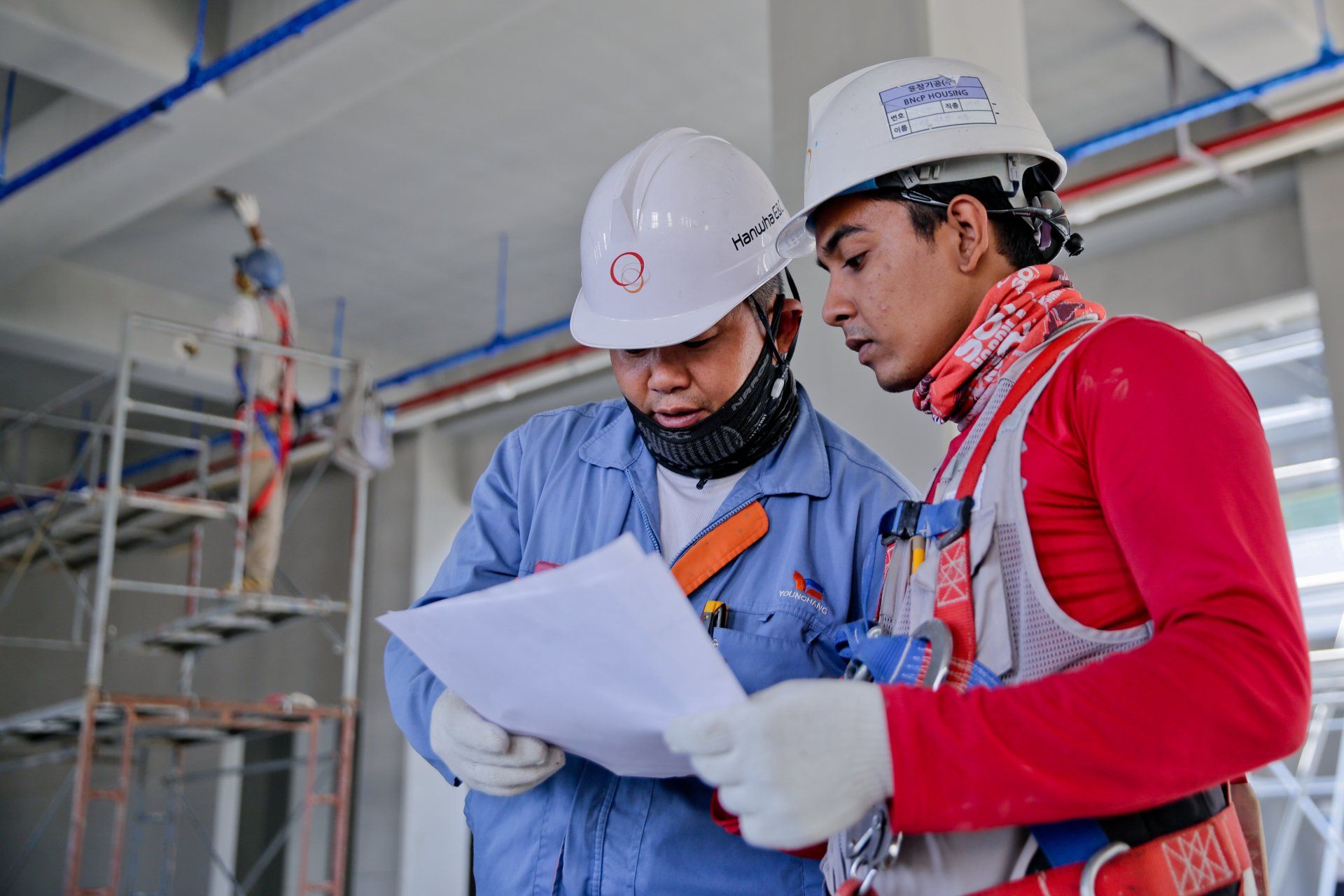PPVS Complete Facilities Management

How Facilities Management Supports the Manufacturing Sector
The manufacturing sector thrives on efficiency, so even a short amount of downtime can lead to significant operational and financial consequences. Facilities Management (FM) plays an essential, strategic role in supporting this industry to ensure it can operate as smoothly as possible. The demands of maintaining uninterrupted production, complying with stringent safety regulations, and coordinating across multiple departments require an FM approach that is both agile and highly specialised.
From supporting infrastructure and equipment handovers to managing access in high-risk production zones, FM services must operate seamlessly alongside core manufacturing functions. When done right, facilities management enhances productivity, minimises risk, and helps ensure manufacturers remain competitive in a high-stakes industry. In this guide, we’ll learn how Facilities Management supports the manufacturing sector in some very important ways.
FM Guide Contents
- Hard Facilities Management Services
- Building Fabric Maintenance
- HVAC
- Soft Facilities Management Services
- Manned Security Grounds Maintenance Services
- Cleaning Services
- Reactive Facilities Management Services
- Reactive Electrical Maintenance Services
- Responsive Plumbing Services
- Planned Maintenance Services
- Water Hygiene Services
- Property Compliance Services
- The Benefits of Outsourcing Facilities Management
- Content Used to Construct This Guide
Coordinating with Planned Engineering Shutdowns
Unlike reactive maintenance in other sectors, much of the FM work in manufacturing must align with tightly scheduled engineering shutdowns. These shutdowns, which are often planned months in advance, are important time windows for facilities work to take place without interfering with live production.
FM teams must liaise closely with production managers, engineering leads, and health & safety coordinators to ensure all works are scheduled, approved, and completed within these planned windows. This includes maintenance of plant infrastructure, deep cleaning of workspaces, inspection of hard-to-reach systems, and completion of compliance documentation.
Once the shutdown begins, efficiency is important. Teams must complete works quickly and thoroughly, ensuring all areas are cleaned down, inspected, and returned to operational readiness in time for restart. The consequences of delays can ripple through production schedules, supply chain commitments, and customer delivery targets.
Managing Permits and Access in Controlled Areas
Manufacturing facilities often include controlled environments, such as high-care and low-care zones, cleanrooms, and sensitive production lines. Access to these areas is tightly regulated to prevent contamination, maintain hygiene, and protect product integrity.
Facilities management teams must follow strict protocols to gain entry, including obtaining permits, undergoing site-specific inductions, and wearing appropriate PPE. Any works, be it electrical, mechanical, cleaning, or refit, must be carried out in line with the site’s operational controls.
For example, work in a high-care food production area may require full tool sanitisation and supervision by QA personnel. In pharmaceutical manufacturing, FM teams may also be required to work under GMP (Good Manufacturing Practice) standards.
This level of scrutiny demands FM providers with specialised experience, attention to detail, and a thorough understanding of production-critical environments.
Challenges with Conventional Facilities Management in Manufacturing
Standard FM solutions, designed for office buildings or commercial settings, often fall short in manufacturing environments. These conventional approaches typically rely on generalist teams, daytime work windows, and minimal integration with operational schedules – none of which work well on a live production site.
Inflexible contracts may not accommodate planned shutdowns or shift-based production cycles, while unfamiliarity with manufacturing protocols can lead to delays, compliance breaches, or even safety incidents.
Another common gap is the lack of coordination with in-house departments. In manufacturing, FM must align not only with production and maintenance teams, but also with departments such as SHEQ (Safety, Health, Environment & Quality), compliance, and operations. Without this integration, even minor works can lead to major disruptions or audit failures.
As a result, manufacturing companies increasingly require tailored FM solutions, like that provided by our expert team at PPVS, that are purpose-built for their environment, delivered by providers who understand the complexity of production-led operations.

How Tailored Facilities Management Meets Manufacturing Needs
A facilities management provider that truly understands the manufacturing sector delivers more than maintenance – they become a partner in operational resilience. Tailored FM solutions are designed to work in harmony with production, engineering, and safety functions, ensuring the factory floor remains safe, compliant, and uninterrupted.
From supporting plant installations to managing infrastructure upgrades, specialist FM teams contribute throughout the lifecycle of manufacturing operations. Whether it’s setting up temporary works areas, handling utilities connections, or overseeing contractor activities, their involvement ensures every element is aligned with broader operational objectives. This approach requires collaboration across departments, including:
- SHEQ teams, to uphold health and safety compliance.
- Engineering leads, for equipment access and shutdown timing.
- Production managers, to avoid downtime and schedule conflicts.
- Facilities teams, for sitewide coordination and planning.
By embedding themselves into the fabric of the organisation, specialist FM providers deliver a service that is both operationally effective and fully compliant with internal and regulatory standards.
Ensuring Compliance and Safe Practices on Production Lines
Manufacturing is heavily regulated, and any work carried out on or near production lines must meet strict standards. FM teams are expected to hold the right accreditations, maintain up-to-date insurances, and demonstrate a proven track record in safe working practices. This typically includes:
- Safe systems of work and method statements (RAMS).
- COSHH-compliant chemical handling (where relevant).
- PPE management and site-specific safety inductions.
- Documented risk assessments and permit-to-work protocols.
These practices protect the workforce as well as the brand. A single incident, such as a chemical spill, unauthorised access, or safety violation, can result in halted production, fines, or loss of certifications. Specialist FM teams mitigate these risks by enforcing a zero-compromise approach to safety and compliance.
They also provide valuable audit support. With traceable documentation, photographic evidence, and compliance records, FM contributes to successful audits from regulatory bodies such as the HSE, BRCGS, or MHRA.
Contingency Planning for Parts and Stock Management
Just like production operations, facilities teams must plan for the unexpected. A key part of manufacturing FM is ensuring access to integral parts, tools, and consumables at short notice. Whether it’s a failed HVAC component, a ruptured pipe, or damaged flooring in a cleanroom, fast resolution is essential to minimise disruption. To do this, FM providers develop contingency strategies that include:
- Holding buffer stock of frequently used or long-lead items.
- Building supplier relationships for expedited replacements.
- Pre-approving contractors for emergency out-of-hours support.
- Maintaining portable equipment for rapid deployment.
These strategies ensure that the manufacturing environment can recover quickly from unplanned events, avoiding knock-on effects across production, quality, and distribution. In short, effective FM contingency planning helps safeguard uptime, product integrity, and delivery performance.
Specialist Facilities Management Keeps Manufacturing on Track
Facilities management in the manufacturing sector is about much more than upkeep, it’s about operational excellence. From navigating engineering shutdowns and controlled zone access to ensuring compliance and managing emergencies, FM acts as a strategic enabler of production continuity.
Manufacturers that partner with sector-specific FM providers benefit from increased uptime, reduced risk, and stronger regulatory standing. In an industry where efficiency and safety are paramount, tailored facilities management is a crucial part of keeping the production line moving. If you’re looking for a specialist FM partner to support your manufacturing infrastructure, please contact our team at PPVS today.


Get in touch to see how we can help with your Facilities Management.
For general enquiries please fill out the form and our team will be back in touch. Or give us a call or email using the details below.





